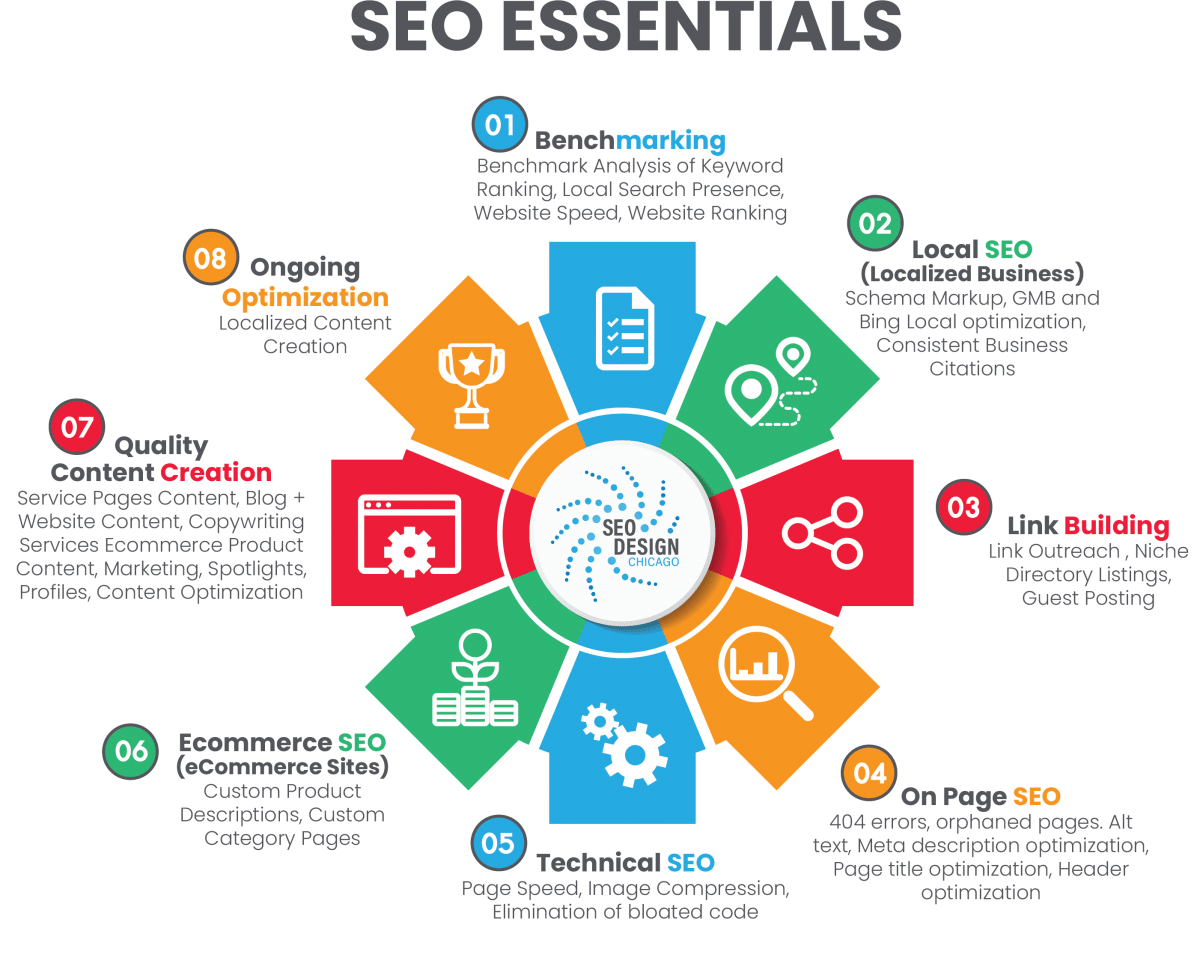SEO Design’s Professional SEO Services Include:
-
10 plus years of SEO agency experience working with hundreds of clients
-
SEO-Driven Content
-
Professional Keyword Research
-
Local SEO
-
Organic Search
-
On-Page SEO
-
Link Building
-
Advanced Reporting
-
Google Penalty Recovery Services
-
Bing Places
-
Ongoing Optimization
-
E-commerce SEO
-
Content Optimization Services
-
B2B SEO
What is SEO?
Many business owners ask what is SEO marketing? SEO is simply stated as a process of targeting specific keywords where a website should “win” online searches. Ensuring your website is search engine optimized is fundamental for your online success. You can have the best website, but if no one sees it, then you might as well not have a website.
Mobile versions and responsive website design should be a major consideration for any website design or rebuild. With the increased importance of mobile first indexing, it is essential that a business presents the best possible presentation and page speeds for both desktop and mobile versions of the website.
SEO Packages
SEO Design Chicago’s successful SEO packages have a proven track record of increasing website exposure and increasing conversions. Search engine optimization is the lifeline of online marketing. We offer our clients comprehensive, affordable, and professional search engine optimization services to increase their website’s rankings.
In addition to optimizing your website for search engines, SEO Design Chicago is a search engine optimization agency that also provides Google penalty recovery services to repair your search engine rankings if your website has been hit with a penalty from Google.
SEO Chicago
SEO Design Chicago is a SEO firm that offers a multitude of techniques and practices that can lead to incredible results for small businesses up to national business size.. We offer SEO services in Chicago and across the nation.
We’ll help you rise above the competition and stand out among the many voices on the internet. View our 50+ case studies from successful clients as a result of our marketing services. Get started with an SEO analysis from SEO Design Chicago today!
















